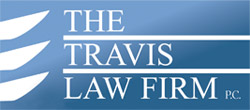
Your Rights if You Are Stopped at a DUI Checkpoint in Pennsylvania

If you are stopped at a DUI checkpoint in Pennsylvania, it’s crucial to understand your rights to ensure fair treatment under the law. First and foremost, you have the right to remain silent. You are not obligated to answer any questions about where you have been, what you have consumed, or any other inquiries that may incriminate you.
However, you must present your driver’s license, vehicle registration, and proof of insurance upon request. Additionally, while police can request a field sobriety test or a breathalyzer test, you can refuse these tests. It’s important to note that refusal may lead to administrative penalties, such as a suspension of your driver’s license, due to Pennsylvania’s implied consent law.
Do I Have the Right to Refuse a Breathalyzer Test at a DUI Checkpoint?
Under the implied consent law in Pennsylvania, drivers automatically agree to submit to chemical testing when they obtain their driver’s license. This means that while you have the right to refuse a breathalyzer test at a DUI checkpoint, such refusal can have significant consequences. Refusing a breathalyzer test typically leads to an automatic suspension of your driver’s license for a period of time, which is often longer than the suspension that might result from failing the test.
Additionally, refusal can be used as evidence against you in court, potentially influencing the outcome of any DUI charges. It is crucial to weigh these considerations carefully and understand the legal implications of your choices at a DUI checkpoint.
What if I Am Asked to Perform Other Tests if the Police Ask Me?
Besides the breathalyzer test, the police may request you to perform field sobriety tests at a DUI checkpoint. These tests are designed to assess your physical and cognitive abilities, potentially indicating impairment. Common tests include the horizontal gaze nystagnus, walk-and-turn and one-leg stand tests.
While you have the right to refuse these standardized tests, it’s important to understand that refusal can be viewed unfavorably by law enforcement and may be used as justification for arrest based on suspicion of DUI. However, unlike the breathalyzer test, the refusal to perform field sobriety tests does not carry the same legal penalties, such as automatic license suspension. It’s crucial to remain calm, make informed decisions, and understand the potential implications of your actions during a DUI checkpoint stop.
How Should I Respond to Police Questioning?
Politely but firmly, you can inform the officer that you choose not to answer such questions without legal representation present. It is advisable not to make unnecessary statements or movements that could be misconstrued as signs of impairment or resistance. Try to cooperate and do not resist orders or argue with the officer. If the situation escalates to the point where you are arrested or believe you might be, asking to speak with a lawyer is your right and should be one of your first actions. Professional legal guidance can significantly impact the outcome of your case and ensure that your rights are protected throughout the process.
Do I Need to Call a Lawyer if I am Suspected of Impaired Driving?
Seeking legal representation if you’re suspected of impaired driving is strongly recommended. An experienced DUI attorney can provide crucial advice, represent your interests during court proceedings, and potentially mitigate the consequences you face. Legal expertise is particularly valuable in navigating the complexities of DUI laws, challenging the evidence against you, and exploring options that may lead to reducing or dismissing charges. Remember, the outcome of a DUI case can significantly impact your future, affecting everything from your driving privileges to potential employment opportunities. Therefore, it’s best to consult with a lawyer specializing in DUI cases as soon as possible following an impaired driving stop.
Count on The Travis Law Firm for Your Legal Needs
At The Travis Law Firm, our DUI attorneys can ensure that all steps in the process are legal if you are arrested or may face charges by calling us at (814) 277-2222. Our experienced lawyers will check all aspects of the case to prevent you from losing your rights unnecessarily. We are also available online.
